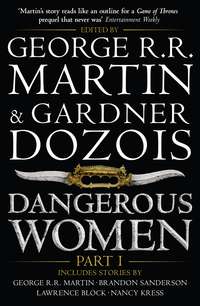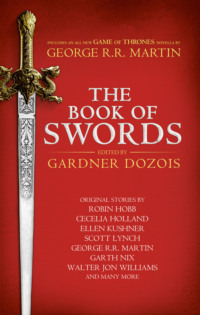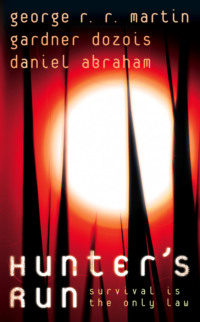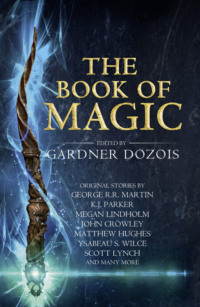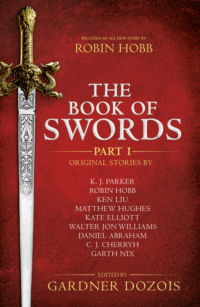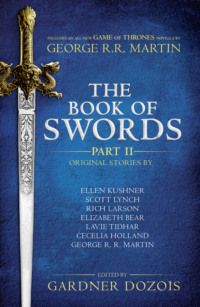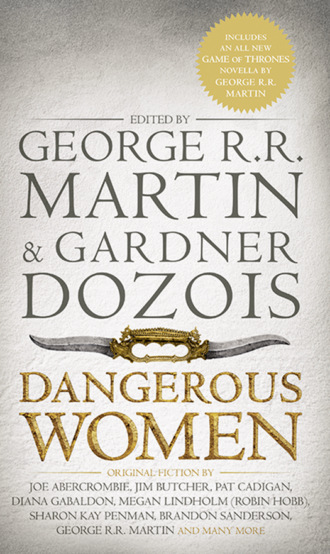
Полная версия
Dangerous Women
“We believe we have located the Krusie woman,” the female detective said. “We have officers heading there now.”
He looked at both of them. He could feel Lorie beside him, breathing hard. It had been less than a day since Lorie first called.
“What are you saying?” he said, or tried to. No words came out.
Katie-Ann Krusie had no children, but told people she did, all the time. After a long history of emotional problems, she had spent a fourteen-month stint at the state hospital following a miscarriage.
For the past eight weeks she had been living in a rental in Torring, forty miles away with a little blond girl she called Kirsten.
After the police released a photo of Katie-Ann Krusie on Amber Alert, a woman who worked at a coffee chain in Torring recognized her as a regular customer, always ordering extra milk for her babies.
“She sure sounded like she loved her kids,” the woman said. “Just talking about them made her so happy.”
The first time he saw Shelby again, he couldn’t speak at all.
She was wearing a shirt he’d never seen and shoes that didn’t fit and she was holding a juice box the policeman had given her.
She watched him as he ran down the hall toward her.
There was something in her face that he had never seen before, knew hadn’t been there before, and he knew in an instant he had to do everything he could to make it gone.
That was all he would do, if it took him the rest of his life to do it.
The next morning, after calling everyone, one by one, he walked into the kitchen to see Lorie sitting next to Shelby, who was eating apple slices, her pinkie finger curled out in that way she had.
He sat and watched her and Shelby asked him why he was shaking and he said because he was glad to see her.
It was hard to leave the room, even to answer the door when his mother and sister came, when everyone started coming.
Three nights later, at the big family dinner, the Welcome Home dinner for Shelby, Lorie drank a lot of wine and who could blame her, everyone was saying.
He couldn’t either, and he watched her.
As the evening carried on, as his mother brought out an ice cream cake for Shelby, as everyone huddled around Shelby, who seemed confused and shy at first and slowly burst into something beautiful that made him want to cry again—as all these things were occurring—he had one eye on Lorie, her quiet, still face. On the smile there, which never grew or receded, even when she held Shelby in her lap, Shelby nuzzling her mother’s wine-flushed neck.
At one point he found her standing in the kitchen and staring into the sink; it seemed to him she was staring down into the drain.
It was very late, or even early, and Lorie wasn’t there.
He thought she had gotten sick from all the wine, but she wasn’t in the bathroom either.
Something was turning in him, uncomfortably, as he walked into Shelby’s room.
He saw her back, naked and white from the moonlight. The plum-colored underpants she’d slept in.
She was standing over Shelby’s crib, looking down.
He felt something in his chest move.
Then, slowly, she kneeled, peeking through the crib rails, looking at Shelby.
It looked like she was waiting for something.
For a long time he stood there, five feet from the doorway, watching her watching their sleeping baby.
He listened close for his daughter’s high breaths, the stop and start of them.
He couldn’t see his wife’s face, only that long white back of hers, the notches of her spine. Mirame quemar etched on her hip.
He watched her watching his daughter, and knew he could not ever leave this room. That he would have to be here forever now, on guard. There was no going back to bed.
Cecelia Holland
Cecelia Holland is one of the world’s most highly acclaimed and respected historical novelists, ranked by many alongside other giants in that field such as Mary Renault and Larry McMurtry. Over the span of her thirty-year career, she’s written more than thirty historical novels, including The Firedrake, Rakóssy, Two Ravens, Ghost on the Steppe, The Death of Attila, Hammer for Princes, The King’s Road, Pillar of the Sky, The Lords of Vaumartin, Pacific Street, The Sea Beggars, The Earl, The Kings in Winter, The Belt of Gold, and more than a dozen others. She also wrote the well-known science fiction novel Floating Worlds, which was nominated for a Locus Award in 1975, and of late has been working on a series of fantasy novels, including The Soul Thief, The Witches’ Kitchen, The Serpent Dreamer, Varanger, and The King’s Witch. Her most recent books are the novels The High City, Kings of the North, and The Secret Eleanor.
In the high drama that follows, she introduces us to the ultimate dysfunctional family, whose ruthless, clashing ambitions threw England into bloody civil war again and again over many long years: King Henry II, his queen, Eleanor of Aquitaine, and their eight squabbling children. All deadly as cobras. Even the littlest one.
NORA’S SONG
MONTMIRAIL,
JANUARY, 1169
Nora looked quickly around, saw no one was watching, and slipped away between the trees and down the bank to the little stream. She knew there would be no frogs to hunt; her brother had told her that when the trees had no leaves, the streams had no frogs. But the water glittered over bright stones and she saw tracks printed into the damp sand. She squatted down to pick a shiny bit from the stream. It wouldn’t be pretty when it dried out. Behind her, her little sister Johanna slid down the bank in a rush.
“Nora! What do you have?”
She held out the pebble to her sister and went on a little way along the trickle of water. Those tracks were bird feet, like crosses in the damp sand. She squatted down again, to poke at the rocks, and then saw, in the yellow gritty stream bank, like a little round doorway, a hole.
She brushed aside a veil of hairy roots, trying to see in; did something live there? She could reach her hand in to find out, and in a quick tumble of her thoughts she imagined something furry, something furry with teeth, the teeth snapping on her hand, and tucked her fist against her skirt.
From up past the trees, a voice called, “Nora?”
That was her new nurse. She paid no attention, looking for a stick to probe the hole with; Johanna, beside her, went softly, “Ooooh,” and on all fours leaned toward the burrow. Her skirt was soaked from the stream.
“Nora!” Another voice.
She leapt up. “Richard,” she said, and scrambled up the bank, nearly losing a shoe. On the grassy edge, she pulled the shoe back on, turned and helped Johanna up behind her, and ran out through the bare trees, onto the broad open ground.
Her brother was striding toward her, smiling, his arms out, and she ran to him. She had not seen him since Christmas, the last time they had all been together. He was twelve years old, a lot older than she was, almost grown up. He bundled her into his arms and hugged her. He smelled like horses. Johanna came whooping up and he hugged her too. The two nurses, red in the face, were panting along behind them, their skirts clutched up in their hands. Richard straightened, his blue eyes blazing, and pointed across the field.
“See? Where Mother comes.”
Nora shaded her eyes, looking out across the broad field. At first she saw only the crowded people, stirring and swaying all around the edges of the field, but then a murmur swept through them, and on all sides rose into a roar. Far down there, a horse loped up onto the field and stopped, and the rider raised one hand in salute.
“Mama!” Johanna cried, and clapped.
Now the whole crowd was yelling and cheering, and, on her dark grey horse, Nora’s Mama was cantering along the sideline, toward the wooden stand under the plane trees, where they would all sit. Nora swelled, full to bursting; she yelled, “Hooray! Hooray, Mama!”
Up there, by the stand, a dozen men on foot went forward to meet the woman on the horse. She wheeled in among them, cast her reins down, and dismounted. Swiftly she climbed onto the platform, where two chairs waited, and stood there, and lifted her arm, turning slowly from one side to the other to greet the cheering crowd. She stood straight as a tree, her skirts furling around her.
Above the stand, suddenly, her pennant flapped open like a great wing, the Eagle of Aquitaine, and the thunderous shouting doubled.
“Eleanor! Eleanor!”
She gave one last wave to the crowd, but she had seen her children running toward her, and all her interest turned to them. She stooped, holding her arms out toward them, and Richard scooped Johanna into his arms and ran toward the platform. Nora went up the steps at the side. Coming to the front, Richard set Johanna at their mother’s feet.
Their mother’s hands fell on them. Nora buried her face in the Queen’s skirts.
“Mama.”
“Ah.” Their mother sat down, holding Johanna slightly away from her; she slid her free arm around Nora’s waist. “Ah, my dear ones. How I’ve missed you.” She kissed them both rapidly, several times. “Johanna, you’re drenched. This won’t do.” She beckoned, and Johanna’s nurse came running. Johanna squealed but was taken.
Still holding Nora against her, Eleanor leaned forward and leveled her gaze on Richard, leaning with his arms folded on the edge of the platform in front of her.
“Well, my son, are you excited?”
He pushed away from the platform, standing taller, his face flaming, his fair hair a wild tangle from the wind. “Mother, I can’t wait! When will Papa get here?”
Nora leaned on her mother. She loved Richard too, but she wished her mother would pay more heed to her. Her mother was beautiful, even though she was really old. She wore no coif, only a heavy gold ring upon her sleek red hair. Nora’s hair was like old dead grass. She would never be beautiful. The Queen’s arm tightened around her, but she was still tilted forward toward Richard, fixed utterly on Richard.
“He’s coming. You should get ready for the ceremony.” She touched the front of his coat, lifted her hand to his cheek. “Comb your hair, anyway.”
He jiggled up and down, vivid. “I can’t wait. I can’t wait. I’m going to be Duke of Aquitaine!”
The Queen laughed. A horn blew, down the pitch. “See, now it begins. Go find your coat.” She turned, beckoned to a page. “Attend the Lord Richard. Nora, now …” She nudged Nora back a step so that she could run her gaze over her from head to toe. Her lips curved upward and her eyes glinted. “What have you been doing, rolling in the grass? You’re my big girl now; you have to be presentable.”
“Mama.” Nora didn’t want to be the big girl. The idea reminded her that Mattie was gone, the real big girl. But she loved having her mother’s attention, she cast wildly around for something to say to keep it. “Does that mean I can’t play anymore?”
Eleanor laughed and hugged her again. “You will always be able to play, my girl. Just different games.” Her lips brushed Nora’s forehead. Nora realized she had said the right thing. Then Eleanor was turning away.
“See, here your father comes.”
A ripple of excitement rose through the crowd like the wind in a dry field, turned to a rumble, and erupted into a thunderous cheer. Down the pitch came a column of riders. Nora straightened, clapping her hands together, and drew in a deep breath and held it. In the center of the horsemen, her father rode along, wearing neither crown nor royal robes, and yet it seemed that everything bowed and bent around him, as if nobody else mattered but him.
“Papa.”
“Yes,” Eleanor said, under her breath. “The kingly Papa.” She drew her arm from Nora and sat straighter on her chair.
Nora drew back; if she got behind them, out of sight, they might forget her, and she could stay. Richard had not gone away, either, she saw, but lingered at the front of the royal stand. Her father rode up and swung directly from his saddle to the platform. He was smiling, his eyes narrow, his clothes rumpled, his beard and hair shaggy. He seemed to her like the king of the greenwood, wild and fierce, wreathed in leaves and bark. All along this side of the field, on either side of the booth, his knights rode up in a single rank, stirrup to stirrup, facing the French across the field. The king stood, throwing a quick glance that way, and then lowered his gaze to Richard, standing stiff and tall before him.
“Well, sirrah,” their father said, “are you ready to shiver a lance here?”
“Oh, Papa!” Richard bounced up and down. “Can I?”
Their father barked a laugh at him, looking down on him from the height of the booth. “Not until you can pay your own ransoms when you lose.”
Richard flushed pink, like a girl. “I won’t lose!”
“No, of course not.” The King waved him off. “Nobody ever thinks he’ll lose, sirrah.” He laughed again, scornful, turning away. “When you’re older.”
Nora bit her lip. It was mean to talk to Richard that way, and her brother drooped, kicked the ground, and then followed the page down the field. Suddenly he was just a boy again. Nora crouched down behind her mother’s skirts, hoping her father did not notice her. He settled himself in the chair beside the Queen’s, stretched his legs out, and for the first time turned toward Eleanor.
“You look amazingly well, considering. I’m surprised your old bones made it all the way from Poitiers.”
“I would not miss this,” she said. “And it’s a pleasant enough ride.” They didn’t touch, they didn’t give each other kisses, and Nora felt a little stir of worry. Her nurse had come up to the edge of the platform and Nora shrank deeper into Eleanor’s shadow. Eleanor paid the king a long stare. Her attention drifted toward his front.
“Eggs for breakfast? Or was that last night’s supper?”
Startled, Nora craned up a little to peer at him: his clothes were messy but she saw no yellow egg. Her father was glaring back at her mother, his face flattened with temper. He did not look down at his coat. “What a prissy old woman you are.”
Nora ran her tongue over her lower lip. Her insides felt full of prickers and burrs. Her mother’s hand lay on her thigh, and Nora saw how her mother was smoothing her skirt, over and over, with hard, swift, clawing fingers.
Her nurse said, “Lady Nora, come along now.”
“You didn’t bring your truelove,” the Queen said.
The King leaned toward her a little, as if he would leap on her, pound her, maybe, with his fist. “She’s afraid of you. She won’t come anywhere near you.”
Eleanor laughed. She was not afraid of him. Nora wondered what that was about; wasn’t her mother the King’s truelove? She pretended not to see her nurse beckoning her.
“Nora, come now!” the nurse said, loudly.
That caught her mother’s attention, and she swung around, saw Nora there, and said, “Go on, my girl. Go get ready.” Her hand dropped lightly to Nora’s shoulder. “Do as you’re bid, please.” Nora slid off the edge of the platform and went away to be dressed and primped.
Her old nurse had gone with Mattie when Nora’s big sister went to marry the Duke of Germany. Now she had this new nurse, who couldn’t brush hair without hurting. They had already laced Johanna into a fresh gown, and braided her hair, and the others were waiting outside the little tent. Nora kept thinking of Mattie, who had told her stories, and sung to her when she had nightmares. Now they were all walking out onto the field for the ceremony, her brothers first, and then her and Johanna.
Johanna slipped her hand into Nora’s, and Nora squeezed her fingers tight. All these people made her feel small. Out in the middle of the field everybody stood in rows, as if they were in church, and the ordinary people were all gathered closely around, to hear what went on. On either side banners hung, and a herald stood in front of them all, watching the children approach, his long shiny horn tipped down.
On big chairs in the very middle sat her father and mother and, beside them, a pale, weary-looking man in a blue velvet gown. He had a little stool for his feet. She knew that was the King of France. She and her sister and brothers went up before them, side by side, and the herald said their names, and as one they bowed, first to their parents and then to the French king.
There were only five of them now, with Mattie gone, and their baby brother still in the monastery. Henry was oldest. They called him Boy Henry because Papa’s name also was Henry. Then there was Richard, and then Geoffrey. Mattie would have been between Boy Henry and Richard. After Geoffrey was Nora, and Johanna, and, back with the monks, baby John. The crowd whooped and yelled at them, and Richard suddenly raised his arm up over his head like an answer.
Then they were all shuffled around into the crowd behind their parents, where they stood in line again. The heralds were yelling in Latin. Johanna leaned on Nora’s side. “I’m hungry.”
Two steps in front of them on her chair, Eleanor glanced over her shoulder, and Nora whispered, “Ssssh.” All the people around them were men, but behind the King of France a girl stood, who looked a little older than Nora, and now Nora caught her looking back. Nora smiled, uncertain, but the other girl only lowered her eyes.
A blast of the horn lifted her half off the ground. Johanna clutched her hand. One of Papa’s men came up and began to read from a scroll, Latin again, simpler than the Latin the monks had taught her. What he read was all about Boy Henry, how noble, how good, and, at a signal, her oldest brother went up before the two kings and the Queen. He was tall and thin, with many freckles, his face sunburnt. Nora liked the dark green of the coat he wore. He knelt before his father and the French king, and the heralds spoke and the kings spoke.
They were making Boy Henry a King too. He would be King of England now, just as Papa was. In her mind suddenly she saw both Henrys trying to jam together into one chair, with one crown wrapped around their two heads, and she laughed. Her mother looked over her shoulder again, her eyes sharp and her dark brows drawn into a frown.
Johanna was shuffling from one foot to the other. Louder than before, she said, “I’m hungry.”
“Sssh!”
Boy Henry got up from his knees, bowed, and came back around among the children. The herald said Richard’s name and he sprang forward. They were proclaiming him Duke of Aquitaine. He would marry the daughter of the French king, Alais. Nora’s eyes turned again toward the strange girl among the French. That was Alais. She had long brown hair and a sharp little nose; she was staring intently at Richard. Nora wondered what it felt like, looking for the first time on the man you knew you would marry. She imagined Alais kissing Richard and made a face.
In front of her, sitting stiff on her chair, the Queen pulled her mouth down at the corners. Her mother didn’t like this, either.
Until she was old enough to marry Richard, Alais would live with them, his family. Nora felt a stir of unease: here was Alais come into a strange place, as Mattie was gone off into a strange place, and they would never see her again. She remembered how Mattie had cried when they told her. But Mama, he’s so old. Nora pressed her lips together, her eyes stinging.
Not to her. This wouldn’t happen to her. She wouldn’t be sent away. Given away. She wanted something else, but she didn’t know what. She had thought of being a nun, but there was so little to do.
Richard knelt and put his hands between the long, bony hands of the King of France, and rose, his head tipped forward as if he already wore a coronet. He was smiling wide as the sun. He moved back to the family and the herald spoke Geoffrey’s name, who was now to be Duke of Brittany, and marry some other stranger.
Nora hunched her shoulders. This glory would never come to her, she would get nothing, just stand and watch. She glanced again at the Princess Alais and saw her looking down at her hands, sad.
Johanna suddenly yawned, pulled her hand out of Nora’s, and sat down.
Now up before them all came somebody else, his hands wide, and a big, strong voice said, “My lord of England, as we have agreed, I ask you now to receive the Archbishop of Canterbury, and let you be restored to friendship, end the quarrel between you, for the good of both our kingdoms, and Holy Mother Church.”
The crowd around them gave up a sudden yell, and a man came up the field toward the kings. He wore a long black cloak over a white habit with a cross hanging on his chest. The stick in his hand had a swirly top. A great cry went up from the people around them, excited. Behind her, somebody murmured, “Becket again. The man won’t go away.”
She knew this name, but she could not remember who Becket was. He paced up toward them, a long, gaunt man, his clothes shabby. He looked like an ordinary man but he walked like a lord. Everybody watched him. As he came up before her father, the crowd’s rumbling and stirring died away into a breathless hush. In front of the King, the gaunt man knelt, set his stick down, and then lay on the ground, spreading himself like a mat upon the floor. Nora shifted a little so she could see him through the space between her mother and her father. The crowd drew in closer, leaning out to see.
“My gracious lord,” he said in a churchy voice, “I beg your forgiveness for all my errors. Never was a prince more faithful than you, and never a subject more faithless than I, and I am come asking pardon not from hopes of my virtue but of yours.”
Her father stood up. He looked suddenly very happy, his face flushed, his eyes bright. Face to the ground, the gaunt man spoke on, humble, beseeching, and the King went down toward him, reaching out his hands to lift him up.
Then Becket said, “I submit myself to you, my lord, henceforth and forever, in all things, save the honor of God.”
The Queen’s head snapped up. Behind Nora somebody gasped, and somebody else muttered, “Damn fool.” In front of them all, halfway to Becket, his hands out, Papa stopped. A kind of pulse went through the crowd.
The King said sharply, “What is this?”
Becket was rising. Dirt smeared his robe where his knees had pressed the ground. He stood straight, his head back. “I cannot give up the rights of God, my lord, but in everything else—”
Her Papa lunged at him. “This is not what I agreed to.”
Becket held his ground, tall as a steeple, as if he had God on his shoulder, and proclaimed again, “I must champion the honor of the Lord of Heaven and earth.”
“I am your Lord!” The King wasn’t happy anymore. His voice boomed across the field. Nobody else moved or spoke. He took a step toward Becket, and his fist clenched. “The kingdom is mine. No other authority shall rule there! God or no, kneel, Thomas, give yourself wholly to me, or go away a ruined man!”
Louis was scurrying down from the dais toward them, his frantic murmuring unheeded. Becket stood immobile. “I am consecrated to God. I cannot wash away that duty.”
Nora’s father roared, “I am King, and no other, you toad, you jackass, no other than me! You owe everything to me! Me!”
“Papa! My lord—” Boy Henry started forward and their mother reached out and grabbed his arm and held him still. From the crowd, other voices rose. Nora stooped and tried to make Johanna stand up.
“I won’t be disparaged! Honor me, and me alone!” Her father’s voice was like a blaring horn, and the crowd fell quiet again. The King of France put one hand on her Papa’s arm and mouthed something, and Papa wheeled around and cast off his touch.
“Henceforth, whatever comes that he chooses not to abide, he will call it the Honor of God. You must see this! He has given up nothing; he will pay me no respect—not even the respect of a swine for the swineherd!”


